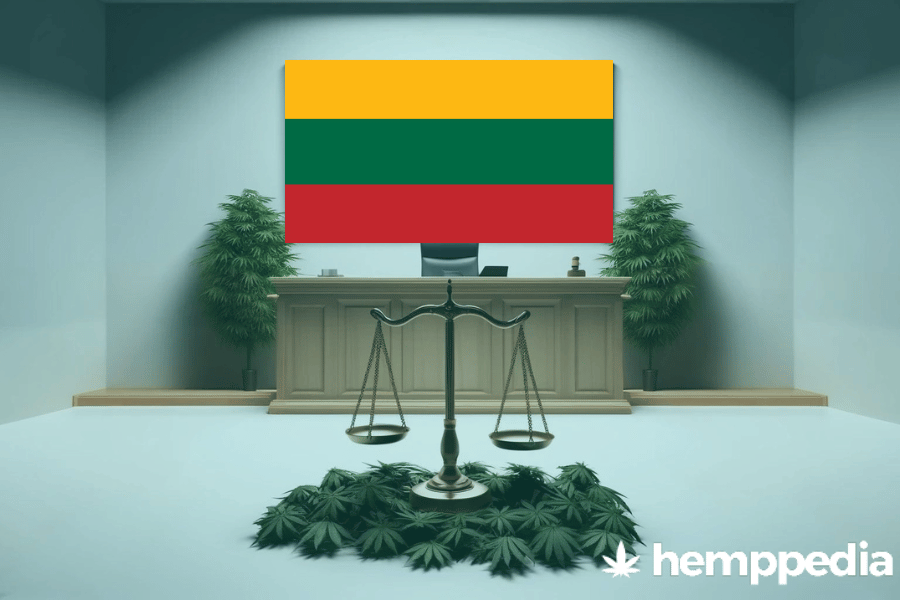Is CBD Legal in Lithuania?
TL;DR
In Lithuania, the use and distribution of CBD (Cannabidiol) is legally restricted. While there are some allowances for medical applications of CBD oil, the country follows strict regulations when it comes to cultivation, possession, and sale of CBD products.
Cannabidiol is a natural compound derived from the cannabis plant known for its potential therapeutic qualities without causing the “high” associated with it’s sibling compound, THC.
In the evolving world of cannabis laws, regulatory posture towards CBD varies greatly from one jurisdiction to another. Lithuania, as is the case with several other countries, is navigating this new frontier with caution.
The key legal aspects of CBD in Lithuania are summarized in the table below:
| Aspect | Details |
|---|---|
| Legal Status | Restricted |
| Possession limits | TBD by prescription |
| THC Content | < 0.2% |
Overview of CBD Legislation
While THC (Tetrahydrocannabinol), the element within cannabis that induces psychoactive effects, remains broadly illegal in many parts of the world, CBD does not produce this ‘high’. Therefore, its legal status is distinctly different in many jurisdictions.
In Lithuania, CBD remains on the state-controlled substances list, despite its non-psychoactive nature. However, the Lithuanian Federal Drug Control Service is responsible for the regulation of CBD, often allowing for its use in medical contexts under strict controls.
Notwithstanding, the country enforces strict limitations on the content of THC in CBD products, putting up a 0.2% THC content cap. Beyond this, CBD product types (oils, topicals, edibles) are subject to regulatory evaluation, and must be labelled correctly denoting all ingredients and components.
Historical Context
The laws addressing CBD usage in Lithuania have remained relatively consistent over recent years, sustaining its predominant ban but with some concessions for regulated medical application.
Possession, Use, Cultivation and Sales
In Lithuania, the possession and usage of CBD oil is allowed for medical patients with a valid prescription. The cultivation of hemp for CBD production is also regulated; only licensed cultivators are permitted to grow hemp, and its THC content cannot exceed the established limit.
Selling CBD products is also regulated, and only licensed distributors can undertake CBD sale. Importation and exportation are also strictly controlled.
Enforcement and Penalties
Any individual or entity contravening the CBD regulations in Lithuania faces penalties including fines, criminal charges or loss of licenses. Enforcement is primarily handled by the Lithuanian Federal Drug Control Service.
Lithuania allows access to CBD for medical purposes. However, this is fulfilled through prescriptions issued by medical professionals who identify a potential benefit to the patient’s health.
Comparative Analysis
Compared to neighboring countries like Latvia and Estonia, Lithuania’s regulations on CBD are rather strict. In contrast, countries like Czech Republic have a more relaxed stance, with the sale and use of CBD being completely legal.
Conclusion
CBD regulations in Lithuania mainly serve to control access and ensure safety. As global trends evolve, the country may review the current framework but for now strict controls and restrictions will remain in place.





